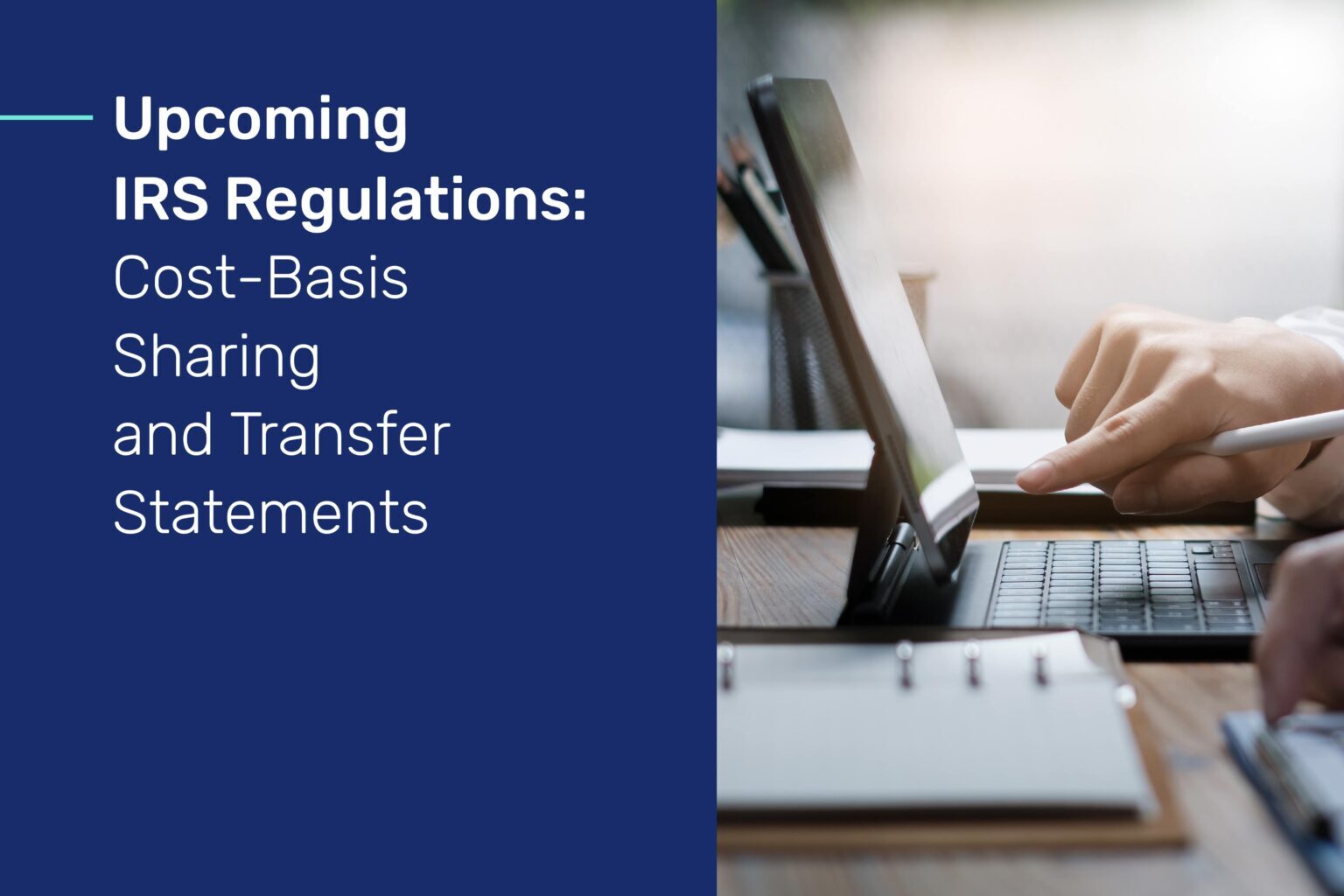How to create a winning strategy to meet upcoming IRS regulations for cost basis sharing on all transfers
Anyone who has attempted to file personal crypto taxes in the past few years is likely familiar with frustrating “missing cost basis” alerts regarding transfers between exchanges or wallets. From a digital asset broker’s perspective, the inability to provide accurate cost basis data to customers has resulted in significant customer support strain and data hygiene issues due to incomplete transaction history.
Upcoming regulations will soon require digital asset brokers to share cost basis information in a way that attempts to solve this common problem, while also marking a key step toward crypto’s maturation as an asset class. The traditional finance industry has been required to conduct cost basis sharing between brokers on all transfers of stocks since 2008. For equities, there is a Cost Basis Reporting Service (CBRS) provided by the Depository Trust and Clearing Center (DTCC) that most U.S. financial institutions rely on for sharing cost basis information between brokers.
Digital asset regulations are evolving to include similar requirements for digital asset brokers. However, since the CBRS is specific to equity transfers, a new solution is needed to empower digital asset brokers to share cost basis information on all cryptocurrency transfers.
Preparing for the Infrastructure and Investment Jobs Act
While reducing customer support costs and maintaining a complete, organized transaction history for all transfers are desirable business outcomes in and of themselves – the new regulations set forth in the Infrastructure and Investment Jobs Act (IIJA) will soon require all digital asset brokers to share cost basis information on all crypto transfers, in addition to many other reporting requirements.
Once the IIJA goes into effect, digital asset brokers will be required to perform transfer statement reporting on all broker-to-broker transfers. Similar to equity transfers, broker-to-broker transactions of digital assets could potentially require a transfer statement to be shared between brokers within 15 days of transfer settlement.
However, the IIJA’s cost basis sharing imperative extends beyond that which can be compared to traditional equities as it also requires transfer statement reporting for transfers between brokers and non-brokers. For all transfers to non-broker addresses (e.g. personal cryptocurrency wallets), a separate transfer statement, filed, with the IRS, will be required. The main challenge is that the IRS has still not provided the transfer statement form and/or format, and filing timing and details.
Regardless, both types of transfer statements (broker-to-broker and broker-to-non-broker) create a large compliance burden on the broker due to the high frequency of transfers in the digital asset space and a lack of infrastructure to track, collect and share the respective transfer information properly. Cryptocurrency markets operate 24 hours a day, 365 days a year, and produce an immense volume of data compared to traditional markets.
This additional regulation will require three things for digital asset brokers to be successful:
- A way to identify an off-platform transfer as a broker or non-broker transfer (e.g. wallet address verification)
- A system to track all transfers and all required transfer information
- A way to generate and deliver all transfer statements for broker-to-non-broker transfers to the IRS
How to Solve the Challenges of Cost Basis Sharing
Ideally, digital asset brokers would have access to a single, automated system that solves the problem of missing cost basis while enabling enterprises to reduce operating costs, avoid filing penalties, and increase customer loyalty. As cost basis sharing requirements will soon apply to all digital asset brokers, each broker will need a method to collect all transfer data, share it with other brokers, and file transfer statements with the IRS for all non-broker transfers.
If each broker were to build its own system to meet IIJA regulations in sharing transfer data, it would likely compound the existing problem of data cleanliness and organization for every exchange. Each broker would have a preferred data model, data transfer method (e.g. APIs, batch CSV uploads, email, and even via USPS), and data storage system, which would likely result in exorbitant manual data entry and analysis to ensure each transfer is accounted for.
Brokers need a single solution that eliminates data gaps for both exchanges and end-users, maintains a complete historical record of all transfers, unites and normalizes all crypto exchange data, and provides a single source of truth to meet all IRS crypto tax regulations. By connecting leading crypto companies with an automated and accurate reporting solution, it would offer the industry a compliant ecosystem for sharing cost basis between brokers and generating IRS Transfer Statements for all non-broker transfers.
How Can Taxbit Help
The good news is that if you think your business will be classified as a digital asset broker under the IIJA and the upcoming U.S. Treasury announcement, Taxbit offers solutions to help you become fully compliant.
Taxbit employs a team of over thirty Tax and Compliance experts with decades of experience working at the IRS, Big Four firms, FASB, and enterprise businesses. Taxbit’s Subject Matter Experts are ready to meet with your team to discuss your business needs and help plot a path to compliance over the coming months.
Taxbit’s Enterprise Tax Suite (ETS) provides a single platform for all digital asset brokers to analyze and manage all digital asset tax and compliance data. The ETS platform is architected with a modern and extensible API-first approach that integrates seamlessly with your existing infrastructure to ingest, process, and categorize the data needed to satisfy all provisions of the IIJA. Beyond the complex calculations and tax rules, Taxbit is enabling a future where compliance is secure, automated, and accurate.
Taxbit has already helped many of the leading cryptocurrency exchanges properly issue Forms 1099-B and 1099-MISC (digital asset income) to customers for years.
Learn more about Taxbit’s pioneering solution, Cost Basis Interchange, here.
.png)


